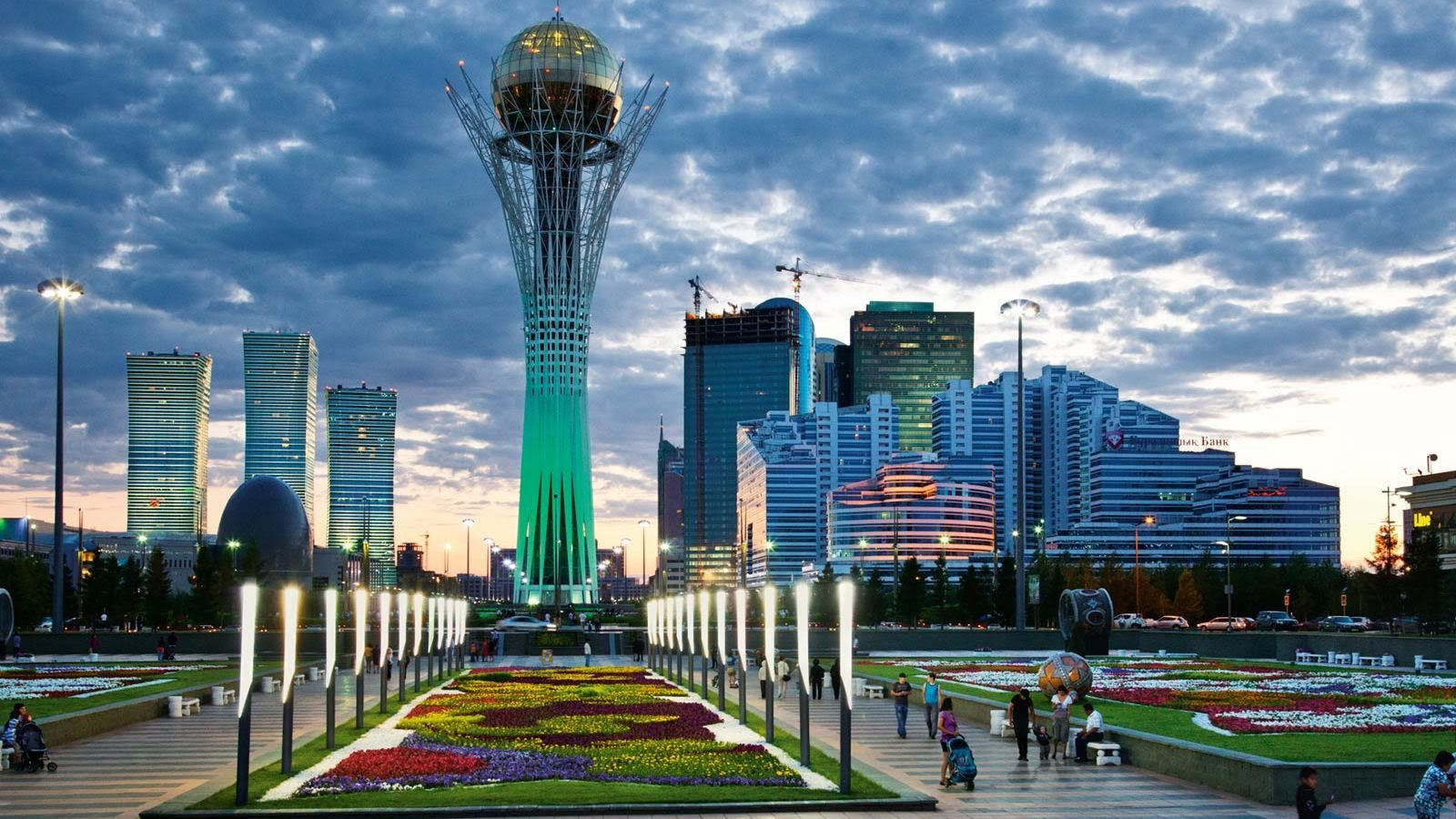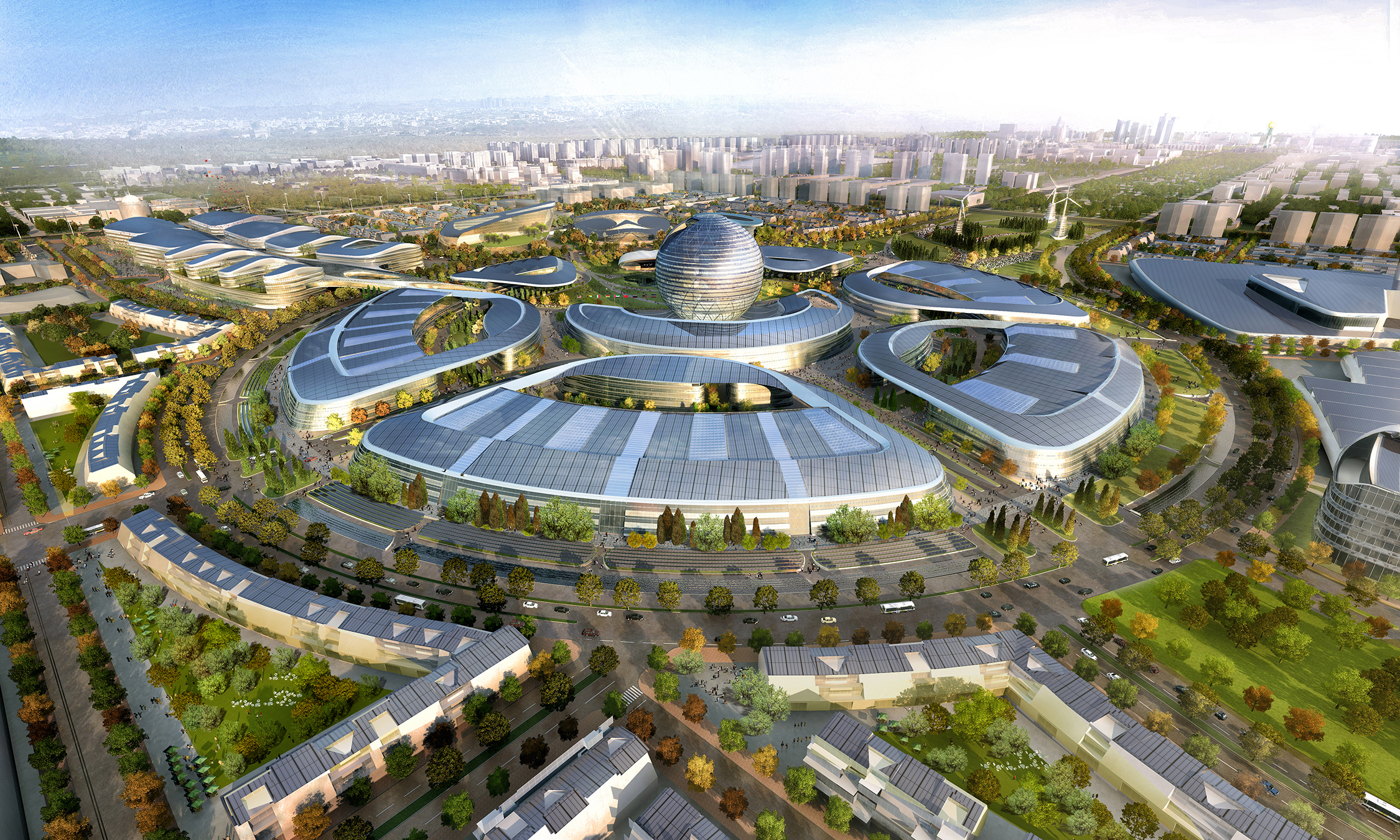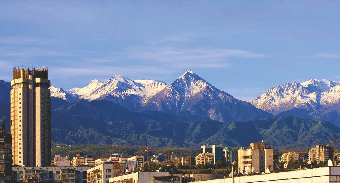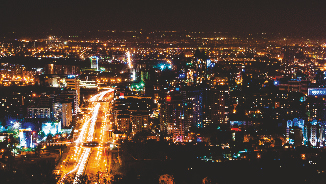Welcome to Kazakhstan
The Republic of Kazakhstan is a unitary state with a presidential form of government. As established in the Constitution, the state is democratic, secular, legal and social and places the highest value on the worth, life, rights and freedoms of the individual. Kazakhstan gained independence on 16 December 1991. Its capital is the city of Nur-Sultan, the currency is the tenge, and the state language is Kazakh. The Russian language has the status of a language of interethnic communication. The President of the Republic of Kazakhstan is the head of state, representing Kazakhstan at home and abroad, and determines the main objectives of domestic and foreign policy. The President is the symbol and guarantor of the unity of the people, the state's power, the inviolability of the Constitution and the rights and freedoms of the individual and citizen. The Government holds executive power within the Republic of Kazakhstan, heads the system of executive bodies and supervises their activity. Legislative functions are performed by the Parliament of the Republic of Kazakhstan, which is bicameral and is constituted by the Senate and the Majilis. The Senate is composed of deputies who are elected every six years. Two deputies are sent by each oblast (administrative area), each major city and the capital of the Republic of Kazakhstan. Fifteen Senate deputies are directly appointed by the President of the Republic in order to ensure that all societal interests and groups are adequately represented. The Majilis consists of one hundred and seven elected deputies who are elected every five years. Nine of these deputies are elected by the Assembly of the people of Kazakhstan. There are currently three parties sitting in the Mazhilis: the “Nur Otan" Party, the “Ak zhol" Democratic Party of Kazakhstan and the Communist People's Party of Kazakhstan. By its administrative-territorial structure, the country is divided into 14 regions and 3 cities of national significance. The cities of national significance are Nur-Sultan, the nation's capital, Almaty and Shymkent.
Kazakhstan is located in the center of the Eurasian continent. The country, which occupies 2,724,900 square kilometers, is the ninth largest in the world. Kazakhstan shares borders with Russia in the north (7,591 km, the longest continuous land border in the world), with China in the east (1,783 km), and with Kyrgyzstan (1,242 km), Uzbekistan (2.351 km), and Turkmenistan (426 km) in the south. The total length of the country's land borders is 13,393 km. Kazakhstan is also bordered by both the Caspian and Aral Seas. Part of the former is owned by Kazakhstan while the latter is shared with Uzbekistan. Kazakhstan is the largest country in the world without direct access to the World's Oceans. Kazakhstan is a land of varied terrains: 44% of it is desert and 14% is semi-desert. Much of it is well irrigated, however. 8,500 rivers flow through Kazakhstan and the country is home to 48,000 lakes of varying sizes. The largest of these are the Aral Sea, Balkhash, Zaisan and Alakol. Moreover, 26% of the Kazakhstan's territory is Steppe land and a further 5.5% is covered by forests. Due to its distance from the oceans Kazakhstan has an extreme continental climate. Summers are hot and dry and winters are cold and snowy. The average temperature in January is around −19 °C in the north and −2 °C in the south, whereas the average temperature in July is around 19 °C in the north and 28 °C in the south. The Republic of Kazakhstan is an industrial country with extensive mining operations, which contribute significantly to economic growth. The country has more than 5,000 deposits of mineral raw materials, which are estimated to be worth tens of trillion of US dollars. Kazakhstan has the most explored reserves of zinc, tungsten and barite of any country in the world, the second most explored reserves of silver, lead and chromites, the third most explored of copper and fluorite, the fourth most of molybdenum and sixth most of gold. Kazakhstan also has considerable oil and gas reserves concentrated in its western areas. The country ranks among the world's leading oil-producing states with volumes of more than 80 million tons of oil and gas condensate a year. According to current plans, the annual extraction will reach 120 million tons by 2020. At present Kazakhstan has the 9th largest confirmed reserves of oil, the 8th largest coal reserves and the 2nd largest uranium reserves. The agricultural sector has been historically important to Kazakhstan. Its leading branch is animal husbandry, and the country's farmers breed sheep, horses, camels, cattle and pigs. There are also extensive poultry farms and fisheries in Kazakhstan. The country's land is both fertile and well cultivated and it is for these reasons that Kazakhstan ranks among the world's top ten grain exporters and is also a leader in the export of flour. In the north 70% of arable lands are used for growing grain, wheat, barley and millet, while rice, cotton and tobacco are grown in the south. Kazakhstan's vineyards, gardens and gourd plantations produce further, varied crops. Since Kazakhstan gained independence in 1991, GDP per capita has increased by 1600%; from $700 to $12,000. This growth is unprecedented, even in comparison with the so-called "tiger economies" of the South East. According to British experts, Kazakhstan's was the third most dynamic economy of the first decade of the 21st century. The country is also in the upper middle income group of countries, according to the World Bank's classification. In its 27 years of independence Kazakhstan has attracted over $200 billion of foreign investment, around 70% of the total volume of all investments attracted to Central Asia. At the end of 2016 the country's gold and currency reserves amounted to $90.8 billion, of which $61 billion was the National Fund's. In “Doing Business", the World Bank's 2019 report, Kazakhstan was ranked 28th. In January-November 2018 Kazakhstan's foreign trade turnover amounted to over $84 billion. The country's main exports are the products of the mining, fuel and energy, metallurgical, chemical and grain industries. Kazakhstan's main trading partners are Russia, China, the CIS and various European countries. The state has long pursued a successful programme of industrial and innovative development designed to modernize and diversify the economy. As a result of this strategic initiative old enterprises have been, and continue to be, modernized, while new enterprises and factories open nationwide. Kazakhstan is currently implementing the “New Silk Way", a large scale project which aims to revive the country's historical role as a connecting link in the continent. It will transform Kazakhstan into the largest business and transit hub of the region, a bridge between Europe and Asia. This mega-project will, by 2020, almost double the volume of cargo traffic passing through the country. The beauty of Kazakhstan's landscape, combined with its unique cultural and historical heritage offer new opportunities for attracting tourism, thereby furthering the country's development. It is not just the economy that is being improved, however. Kazakhstan's schools are being modernized, professional colleges and universities are being constructed, up-to-date medical clinics and hospitals are being introduced and the system of social security is being improved. Cultural cohesion is important to Kazakhstan, which is currently home to 130 ethnic groups. In order to harmonise relations between these peoples, the Assembly of the people of Kazakhstan has been founded. The country is increasingly establishing a position for itself on the world stage and has hosted a number of international economic, cultural and political gatherings in recent years. Since 2008, leading economists, analysts and experts from across the globe have flocked to the Astana Economic Forum. In 2011 the 7th Winter Asian Games were successfully held in Nur-Sultan (then Astana) and Almaty, with the national team taking first place in the team rankings. In 2018, Nur-Sultan hosted the Sixth Congress of Leaders of World and Traditional Religions, which was attended by 82 delegations from 46 countries. In January and February 2017, the city of Almaty hosted the 28th Winter Universiade. In 2018, Nur-Sultan celebrated its 20th anniversary. From 10 June to 10 September 2017, Kazakhstan hosted the Astana EXPO 2017, dedicated to the theme of 'Future energy'. 115 countries and 22 international organisations sent representatives to this gathering, which attracted over 3 million visitors. EXPO's legacy is to be equally important: the International Centre for Development and Investment in Green Technologies, an International Technology Start-up Centre and the Astana International Financial Centre will occupy the EXPO site. These are ambitious projects aimed at making Kazakhstan Central Asia's biggest centre for innovation technologies and one of the world's top 20 financial centres. As a leader in Central Asia, Kazakhstan makes a considerable contribution to strengthening the region's stability. To this end, the country has achieved significant successes on the international stage. One such achievement has been the development and launch of the Conference on Interaction and Confidence-Building Measures in Asia – the Asian equivalent of the OSCE. Such successes have been made possible, in large part, through Kazakhstan's chairing of the OSCE and its hosting of the 2010 OSCE Summit in Nur-Sultan. This record of positive international leadership was strengthened by Kazakhstan's much praised tenure as chair of the Organisation of Islamic Cooperation (OIC) – the leading organisation of the Islamic World. From 10-11 September 2017, Nur-Sultan hosted the OIC's inaugural Summit on Science and Technology. Its objective was to identify priorities, goals, and targets for advancing and promoting education, science, technology and innovation across the Islamic world. The Summit resulted in several major successes, notably the signing of the Astana Declaration. The adoption of the OIC 2026 Plan of Action was also widely praised. This agreement aimed to achieve the UN's sustainable development goals, while strengthening co-operation between Islamic states in the fields of science, technology, and education. Kazakhstan is also a recognized leader in the global antinuclear movement. On 29th August 1991, President Nazarbayev made the landmark and unprecedented decision to close the Semey nuclear test site – the largest test site in the world. This marked the beginning of Kazakhstan voluntarily renouncing its nuclear arsenal, the fourth largest in the world. It was at Kazakhstan's initiative, in recognition of the country's commitment to the elimination of nuclear weapons, that 29 August is celebrated annually as the International Day Against Nuclear Tests. Kazakhstan's opposition to nuclear weapons is accompanied by an appreciation of the potential of nuclear power as an energy source. Today the country is home to the IAEA Low Enriched Uranium (LEU) Bank, which aims to create a guaranteed reserve of low enriched uranium. This reserve, if needed, will be capable of producing sufficient nuclear fuel for the power plants of any IAEA member state. Kazakhstan actively co-operates with its international partners within the framework of a variety of international organisations, such as CIS, SOC and EAEU. In July 2010 the Customs Union of Belarus, Kazakhstan and Russia was launched and the Common Economic Space between these countries was inaugurated on 1 January 2012. On 1 January 2015, the treaty establishing the Eurasian Economic Union came into force. These international unions are aimed at effectively developing the participating states' economies in order to increase living standards through the free movement of goods, peoples, services, and capital across the borders of the member-states. The stable growth of all branches of the economy, increasing international recognition and well-established political stability are the basis of the prosperity of Kazakhstani society. Kazakhstan is a country that, though it honours its cultural traditions, looks unceasingly to the future, successfully realizing its huge creative potential in the modern, highly-competitive world.
General informations
- Kazakhstan is the 9th largest country in the world by the size of its territory.
- In 2016, Kazakhstan celebrated its 25th anniversary as an independent nation.
- Kazakhstan is the biggest land-locked country in the world, covering an area the size of Western Europe.
- Kazakhstan is one of the most diverse countries on earth, with over 130 different ethnic groups.
- In 2015, Kazakhstan marked the 550th anniversary of the Kazakh Khanate, the statehood of Kazakhstan.
- Kazakhstan is home to the world's largest and oldest space launch facility. The Baikonur Cosmodrome launched the first man, Yuri Gagarin, to space in 1961. In 2016, UK's Major Tim Peake launched to the International Space Station from Baikonur.
- Nur-Sultan has been the capital of Kazakhstan since 10 December 1997.
- In 2016, Kazakhstan was elected to join the UN Security Council as a non-permanent member for 2017-2018.
- On 19 March 2019. The First President of the Republic of Kazakhstan − Elbassy Nursultan Nazarbayev resigned as the President of the Republic of Kazakhstan. Chairman of the Senate of the Parliament of the Republic of Kazakhstan Kassym-Jomart Tokayev took the oath as the President of the Republic of Kazakhstan on 20 March 2019.
- On 23 March 2019, by the Decree of the President of Kazakhstan Kassym-Jomart Tokayev, the capital of Kazakhstan, Astana, was renamed to Nur-Sultan in honour of the First President of the Republic of Kazakhstan − Elbassy Nursultan Nazarbayev.



